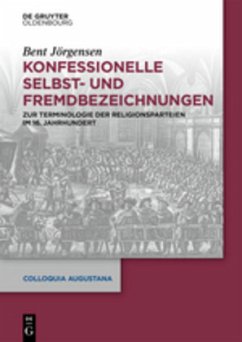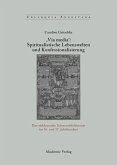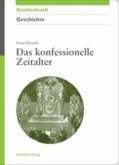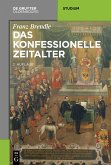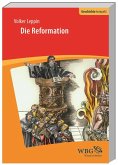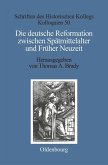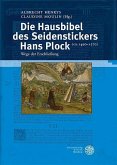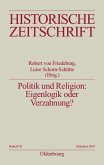In the Imperial Diets of the Protestant Reformation period, Catholic and Protestant factions stood in opposition to each other. Both sides claimed to represent Christian truth. For the Holy Roman Empire to maintain any capacity for action, people had to develop a way of speaking that allowed for communication between representatives of all faiths – a high-wire act at the intersection between political considerations and religious self-conception.
Auf den Reichstagen der Reformationszeit standen sich katholische und evangelische Stände gegenüber. Theologen beider Seiten reklamierten in zahlreichen Streitschriften die christliche Wahrheit für sich und warfen ihren Kontrahenten Unglauben vor. Dies brachten sie auch durch die Namen zum Ausdruck, mit der sie die eigene wie die gegnerische Religionspartei belegten. In dieser aufgeheizten Situation war an eine konstruktive Arbeit auf den Reichsta-gen kaum zu denken. Um die Handlungsfähigkeit des Reiches zu erhalten, musste man also einen Sprachgebrauch entwickeln, der eine zielführende Kommunikation zwischen den Ständen aller Konfessionen überhaupt erst ermöglichte - ein Drahtseilakt zwischen politischer Rücksichtnahme und religiösem Selbstverständnis.
Auf den Reichstagen der Reformationszeit standen sich katholische und evangelische Stände gegenüber. Theologen beider Seiten reklamierten in zahlreichen Streitschriften die christliche Wahrheit für sich und warfen ihren Kontrahenten Unglauben vor. Dies brachten sie auch durch die Namen zum Ausdruck, mit der sie die eigene wie die gegnerische Religionspartei belegten. In dieser aufgeheizten Situation war an eine konstruktive Arbeit auf den Reichsta-gen kaum zu denken. Um die Handlungsfähigkeit des Reiches zu erhalten, musste man also einen Sprachgebrauch entwickeln, der eine zielführende Kommunikation zwischen den Ständen aller Konfessionen überhaupt erst ermöglichte - ein Drahtseilakt zwischen politischer Rücksichtnahme und religiösem Selbstverständnis.

